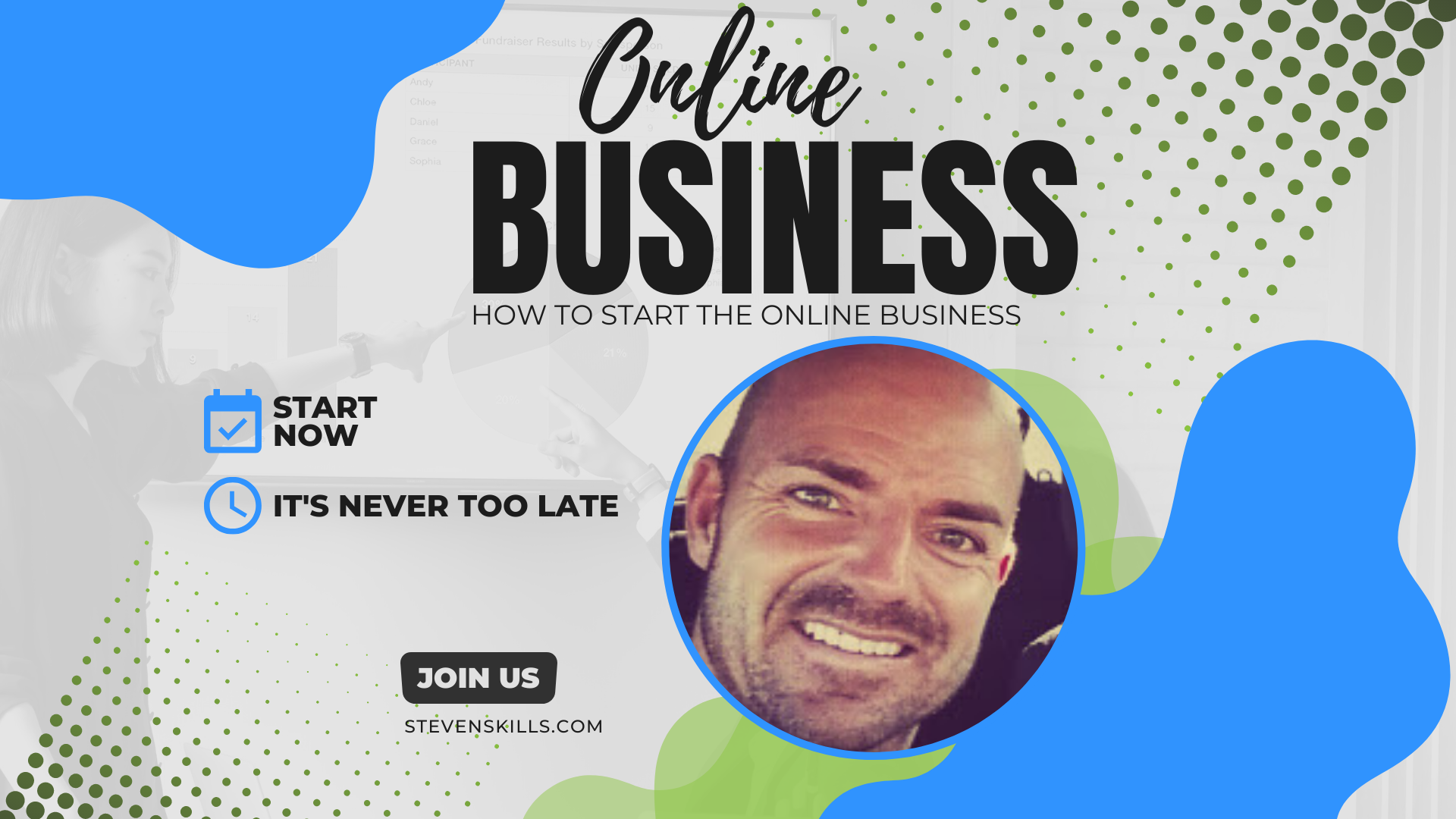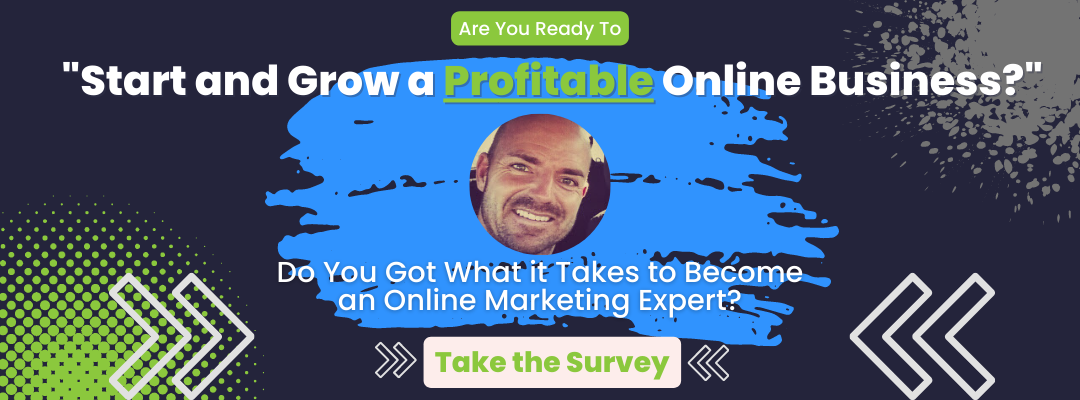How to Start the Online Business

Introduction
Hi, if this is your first time on my blog, welcome! This post was imply composed to help show you how to start the online business you've always wanted.
You can also read: "Blogging, How to Start".
My name is Steven Lewis and I help people make money online with their website or blog, especially if you have no experience and you want to get up and running fast!
Just so you're aware... Starting a business online is easier than ever before, and it can be a great way to make money. You don't need to spend thousands of dollars on marketing or even know how to code in order to have your own website or blog.
However, there are many ways that you can fail when starting an online business. To avoid this fate of so many others, follow the steps below, they're kind of easy and relatively simple.
Decide your niche business model.
Before you just jump in and start making waves online, you first need to know and understand what you're purpose is. You should also have a firm understanding of what you're going to provide to people who eventually visit your website.
As a rule of thumb, most successful marketers focus on providing SOLUTIONS to PROBLEMS people are experiencing in a certain niche market.
As an example: Suppose, you're a person who suffers from a skin condition known as eczema. And your Esthetician provided you with information and products that eventually clears up your skin issues, giving you a new lease on life. So you decide that you want to share this information with people around the world who suffer from the same skin issues. So you follow the steps I'm going to outline below, you provide valuable information that solves these peoples problem - and you sprinkle in some promotions for products that can help them get relief faster, earning you money.
This is your NICHE. Now you need to decide the business model you will use to make money online. You have four options:
Sell a product. This is the most common way to make money online, and it's often how people start their first successful online businesses. For example, if you want to sell something like an ebook or some kind of software, you need a website where people can buy it from you directly (or through Amazon).
Offer a service. If your expertise is in marketing or website design, try offering those services as a freelance service on sites like Upwork or Fiverr instead of selling them directly through your own site or platform.
Offer free trials or subscriptions before charging for access later on down the line
Give away content freely but encourage users who enjoy what they're reading/watching/listening too much not only click "like"/"share"/"retweet" etc but also subscribe so that they can continue receiving this valuable information each week
Next you need to decide on your business identity/name.
Plan and create a brand identity.
So you've got an idea for a business, but how do you make it stand out from the crowd?
Branding.
Your brand is more than just the logo or slogan that adorns your business cards and website. It's an overall impression of what you're selling and who you are as a company, which gives customers an idea of what to expect from working with or buying from you. It helps them decide whether or not they want to do business with you.
Branding is such an important part of creating a successful online business because it helps set yourself apart from competitors in a crowded market. By creating a strong identity for your brand, people will feel like they know who they're dealing with (or buying from) when they come across your listing on Google or Facebook ads. And this familiarity helps them feel more comfortable spending money on whatever services or products they offer.
How to Start the Online Business: Domain Name
Selecting a domain name is an important part of the branding process for your website. You want to select a domain name that:
Represents your brand, ideally in the form of a word or short phrase.
Is easy to remember and type. This makes it easier for customers to find you online and share your site with others.
Is not already taken by another company or person because then someone else can claim ownership over it (and possibly use it in ways that are not related to you).
You also want to avoid using hyphens in your domain name. They are harder to type than words without them, which makes them less memorable. These types of names could cost more money over time because they're often missspelled.
You can purchase a domain name just about anywhere these days. Depending on which hosting provider you choose, you can purchase a domain name with them and get the name for free the first year.
Get website hosting
Hosting, in simple terms, is the place where your website lives on the internet.
There are two main types of hosting that you might consider; shared or dedicated. Shared hosting means that multiple websites will live in the same server with each other, whereas dedicated means there is only 1 site per server and therefore no one else lives there but you! You also have cloud-based servers which are a bit different to these two options.
So what's the difference between shared and dedicated? Basically with a shared host, dozens if not hundreds of sites all live together on one server. Meaning they share resources like RAM (memory) and bandwidth. For example if 50 people are visiting one site at any given time then everyone gets half their capacity back because only 25 people need it at once. (But then again if 100 people visit another site then those users all have access to full capacity).
This isn't necessarily bad - but sometimes it can mean slower speeds than dedicated hosts offer or less control over other sites residing within your account as well as having less flexibility when upgrading packages because all customers are sharing resources across multiple accounts. That being said though... some companies offer special discounts for high traffic websites so this isn't always an issue either
On top of this many companies sell VPS solutions now too which can be considered halfway between shared/dedicated hosting solutions depending on how much control over resources you want/need
Two of the better hosting providers and cost effective, especially for setting up a website using a blogging platform like WordPress are:
Once you decide on a hosting provider and purchase your plan, you want to install WORDPRESS through your cPanel. BlueHost does this for you - simply follow their steps when setting up your account and you're good. Hostgator will help you through their support, or you can install WordPress through cPanel and SOFTLICIOUS.
Here is an article from WordPress: https://wordpress.com/support/five-step-website-setup/
Customize your WordPress platform.
Now that you have a domain name and hosting, it's time to customize your WordPress platform. There are a lot of ways to do this, including:
Plugins – These add new functionality to your site such as social media sharing buttons or contact forms
Themes – Themes change the look and feel of your website by changing its background color, header image and more. They can also be used in conjunction with plugins.
Child Themes - These allow you to customize an existing theme without modifying its core files. This means if there is an update for the parent theme later on down the line, none of your changes will get overwritten or lost when you update it!
When it comes to the look & feel of your website (which I like to call 'atmosphere') make your colors and designs count!
If you're not a designer and don't have money to shell out for that type of work, consider doing it yourself with Canva.
Implement a website builder
Another great way to modify how WordPress functions is through using a site Builder plugin like OptimizePress or ThriveThemes. These options are a little more advanced and do have a learning curve, but can make your web presence stand out in the crowd!
A website builder is a tool that allows you to create a website without coding. In other words, it provides you with the necessary functionality to create your own site without any coding knowledge.
There are many different types of website builders that offer various features and options for those who want to start an online business. Some of these builders come with drag-and-drop design tools while others have templates that allow you to customize their look and feel so they are more personalized.
If you aren’t able to find the perfect template through one of these methods, there is usually an option available where individual elements can be adjusted by specifying dimensions or styling properties before adding them into the design flow. These features make it easier than ever for anyone interested in learning how to build websites without coding experience!
Set up an email marketing tool
Once you've started your business, the next step is to start collecting email addresses. This will allow you to market your products or services directly to people who already know and trust what you offer.
MailChimp is one of the most popular email marketing tools for small businesses (and free). It allows users to create their own newsletters, manage lists of contacts, and send emails in bulk.
MailChimp also offers an integration with WordPress so that bloggers can easily integrate it into their blogs as well. In addition, MailChimp's mobile app lets users manage their emails on the go without having access to a computer or internet connection at all times.
MailChimp also has advanced features such as A/B testing where users can test out different subject lines or content before sending out an email campaign; this helps them determine which method works best so they don't waste time sending out emails that won't get any response at all from recipients instead of just getting some feedback first without needing someone else's approval first before sending anything out into cyberspace.
If you decide to use a website builder (which I highly recommend), then choose an email marketing solution that integrates with that builder.
Once you have your site builder installed, there should be a directory called: 'integrations' that will show you which services they work with.
Find affiliate products, and then promote them through articles.
To make money with affiliate programs, you need to find products. Ideally, these are relevant to your niche and have a high commission rate. The easier it is to promote the product, the better. If there's also a good return rate on that product: meaning that customers tend to buy it repeatedly, then all the better!
When choosing a product to sell through your affiliate link, look at its popularity in search engines like Google or Bing. How long it's been around; how many reviews (and high-quality ones) it has. How frequently people post questions about it on message boards. And look to see how many other keywords there are associated with your niche or topic area. This might help people find this particular product among others on Amazon or elsewhere online.
Choosing which affiliate directories will work best for your niche -- simply search online for 'affiliate programs' and include your niche business identity; ie: eczema affiliate program, etc.
To promote these products, you simply provide one thing: a quality solution to a problem your niche market is experiencing.
You write content providing this solution. You sprinkle in unassuming promotions for these 'solutions' within the content. And as you start collecting email addresses from your blog, you set up an autoresponder series that sends out predetermined email messages that include valuable information and product promotions.
Email marketing is way more detailed than this and I provide a course about email marketing (and affiliate marketing) you should check out. But this simple information should open the door and get you started.
Compose Evergreen content daily
To make money online, you need to create evergreen content on a daily basis. Evergreen content is simply a piece of writing that has value and information that is still relevant ten or more years from now. This will help you gain traffic from Google search results which means more people will visit your website or blog and buy products from there.
You can create evergreen content by answering questions about your niche in different forums, asking experts for advice on how to build an online business or researching the best ways to do things in your niche (such as how to start an online business).
You can even use Ai writing software to help you write quality blog posts faster than you can do yourself:
Jasper
Copyai
Hyperwrite
Rytr
Copymatic
Use the right tools to scale your business.
Use the right tools to scale your business.
The right email marketing software helps you manage subscriber lists, create campaigns, and measure results. You should be able to A/B test emails easily using this kind of program—test out different subject lines or layouts on a small segment of users before sending the email out to everyone else in order to see which one performs best with your customers.
Good analytics software gives you insights into how people are interacting with your site so that you can optimize it for conversions (sales). This type of tool reports back data about things like click-through rates from ads and how long visitors stay on each page before leaving; but its most important function is helping track key metrics like signups for newsletters or downloads from landing pages as well as conversions (eCommerce purchases).
Marketing automation tools help streamline repetitive marketing tasks such as email campaigns by automating various processes such as lead nurturing by automatically sending out emails based on user behavior or timelines set by sales reps—this way people don't have do anything manually when they receive an inquiry from someone who may become a customer down the road...
Keep up with social media.
Social media is a great way to connect with people and promote your business. Here's how:
Use social media to connect with customers. Social media can be used to attract new customers, keep existing customers interested in your brand and product, or offer coupons for discounts on future purchases. You can even use it as an alternative to email marketing by sending out coupons or discount codes through Facebook Messenger or Twitter DM (Direct Message).
Use social media for promotion purposes only. Don't waste time posting selfies all day! Instead, focus on using the platform as a way of promoting yourself and your company/brand identity online while staying up-to-date with trends in the digital economy through hashtags etcetera...
You can choose to promote pictures, images and videos - just be sure to focus on your people, not yourself. Be engaging and provide thoughtful, entertaining information that will make people want to know more. Don't be generic or boring. But you don't have to to be the most flamboyant either.
Search social media sites using keywords from your niche business idea and see what your competition is doing - identify who's successful through most views/likes/shares and create your own content similar to theirs, without copying what they do exactly. Put your own flare, tone and spin on it.
Follow these steps on how to start the online business
Do Your Research
Find a Niche
Create a Website
Find Products to Promote (or you can sell your own)
Create Content That Will Attract Customers to Your Website, Blog and Social Media Accounts 6. Get the Right Tools & Software (to make things easy on yourself) 7. Scale Your Business 8 Keep Up with Social Media
Conclusion
I hope that you now have a clearer understanding how to star the online business. Remember, the most important thing is to be consistent, don't get discouraged and keep it moving if you want to making money. If you follow these steps and keep working hard, I’m sure your business will grow and succeed just like mine has.



